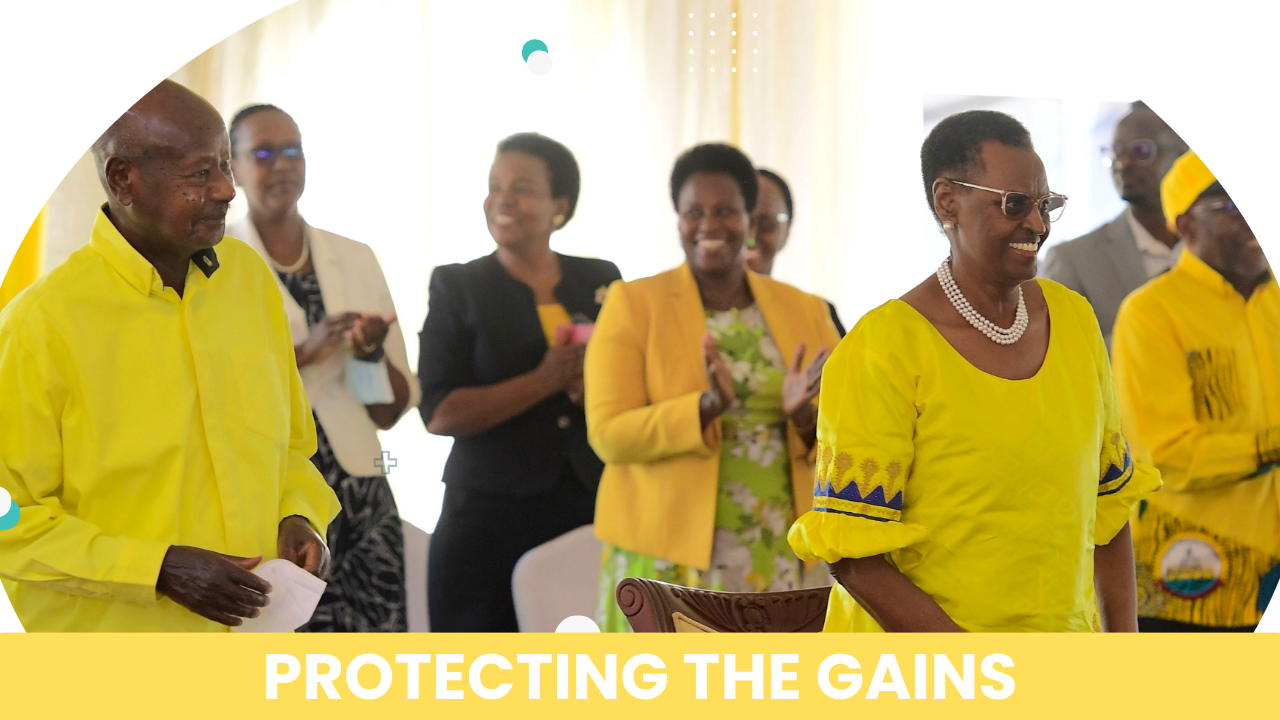In a dramatic political twist, President Yoweri Museveni today publicly embraced a group of defectors from the opposition National Unity Platform (NUP), led by Robert Kyagulanyi, popularly known as Bobi Wine. The high-profile event at Kololo Ceremonial Grounds drew large crowds and has fueled debate over Uganda’s political direction as the 2026 elections approach.
A Public Reintegration
Images from the gathering show hundreds of individuals clad in NRM yellow, raising their hands in solidarity as Museveni welcomed them into the ruling party’s fold. In a post on X at 6:56 p.m. EAT, Museveni thanked the “converts” for abandoning what he described as “misleading opposition politics” and congratulated former prisoners among them for “realizing their mistakes.”
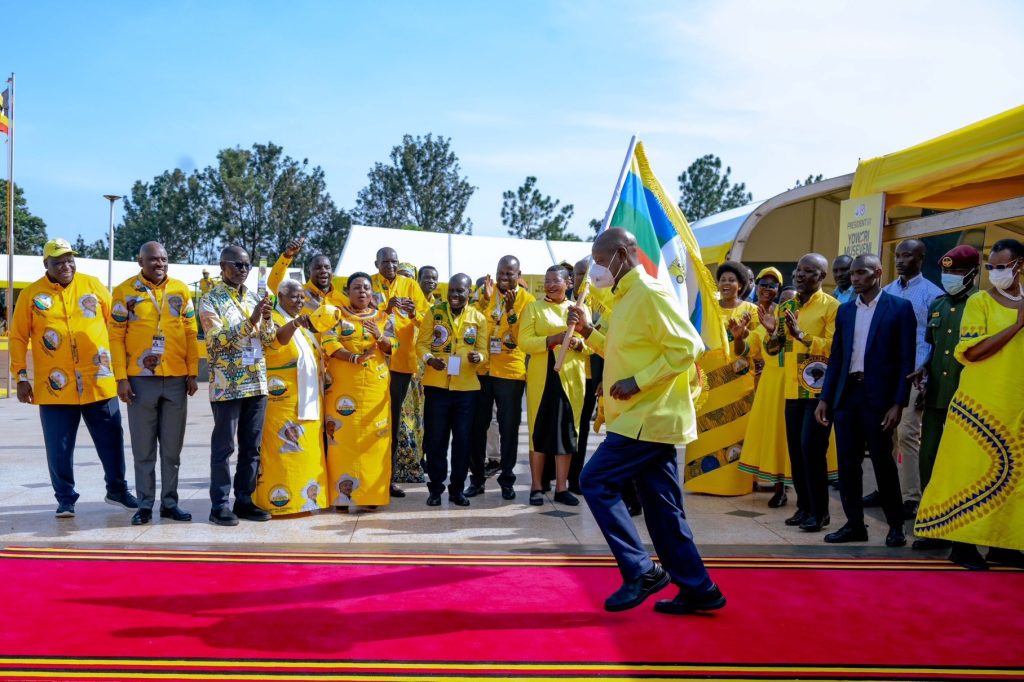
The president pledged the National Resistance Movement’s (NRM) support for their reintegration into society, urging them to focus on government programs in agriculture, artisanship, industry, services, and ICT. A memorandum presented by the defectors was received with a promise of review.
Political Context
Founded in 2020, NUP quickly became Uganda’s most formidable opposition party, fueled by Bobi Wine’s populist appeal and mass youth support. The defections at Kololo mark a visible crack in its base, celebrated by NRM loyalists but raising questions among opposition supporters.
The timing is significant: Museveni’s government continues to face international criticism over political freedoms. A European Parliament resolution in 2021 dismissed Uganda’s elections as neither free nor fair, while Freedom House’s 2025 report rated the country’s political rights just 11/40, highlighting intimidation and patronage networks.
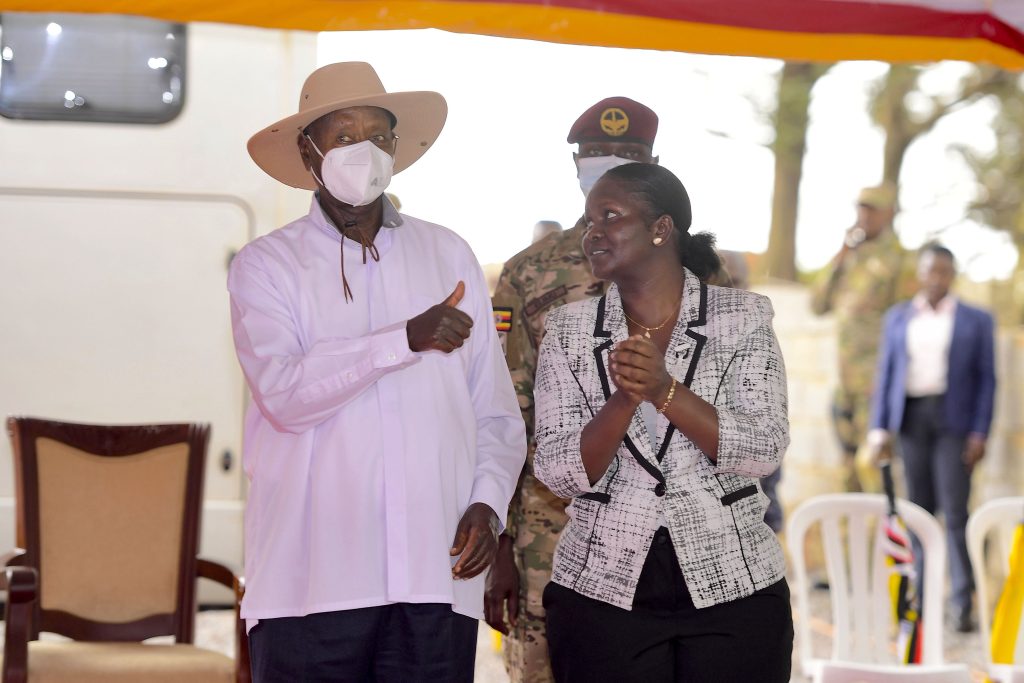
Reactions and Criticism
Reactions on X mirrored Uganda’s polarized politics. Supporters praised Museveni’s willingness to forgive and guide “misled youth.” Critics, however, questioned whether the defections were voluntary, citing Uganda’s track record of political arrests.
Human Rights Watch’s 2024 report documented more than 1,000 arbitrary arrests of opposition supporters since 2020. This raises doubts over whether today’s defections reflect genuine political realignment or coercion. Opposition figures rejected the narrative, asserting: “We are not criminals.”
Strategic Calculations
Analysts suggest the event could be a calculated NRM strategy to weaken NUP ahead of the 2026 elections, offering defectors economic promises and political protection. Yet it may also deepen public mistrust in Uganda’s political system, where gestures of “dialogue” often contrast with reports of state violence.
Museveni’s concurrent handover of leadership of the Inter-Party Organization for Dialogue to Democratic Party leader Norbert Mao adds another layer of irony, given ongoing reports of harassment against opposition groups.
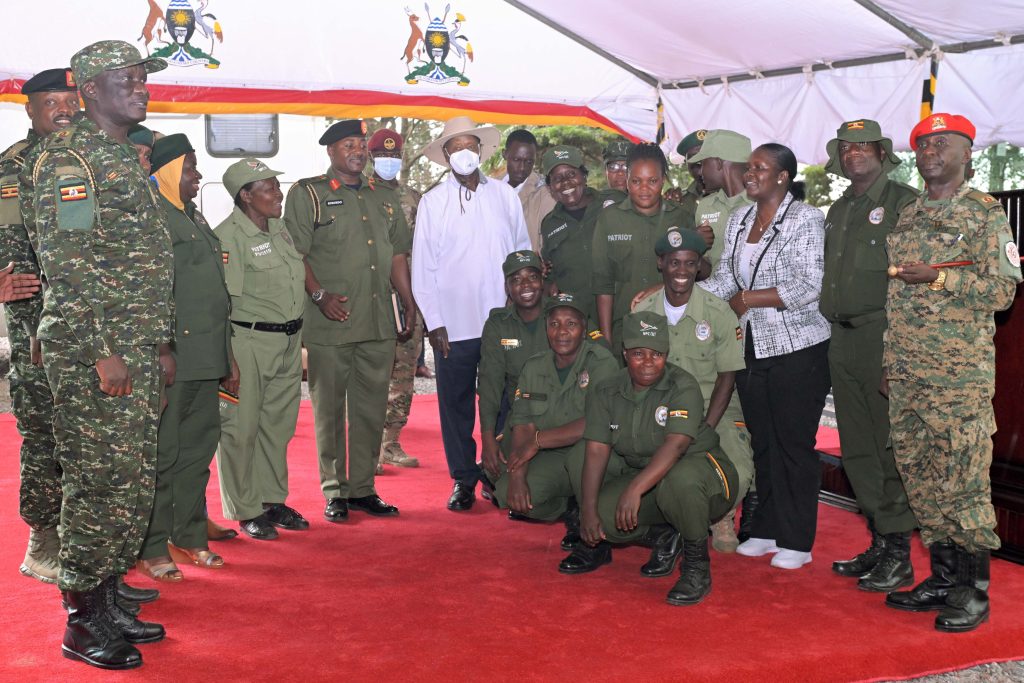
What Lies Ahead?
The true motivations of the defectors remain unclear. Were they convinced by promises of stability, or pressured into compliance? The event has reignited debate over Uganda’s democratic trajectory, with international and domestic observers expected to closely monitor how reintegration is handled.
As the countdown to 2026 intensifies, today’s spectacle at Kololo may prove to be either a turning point in Uganda’s political story—or another episode in its long-running drama of power, opposition, and control.
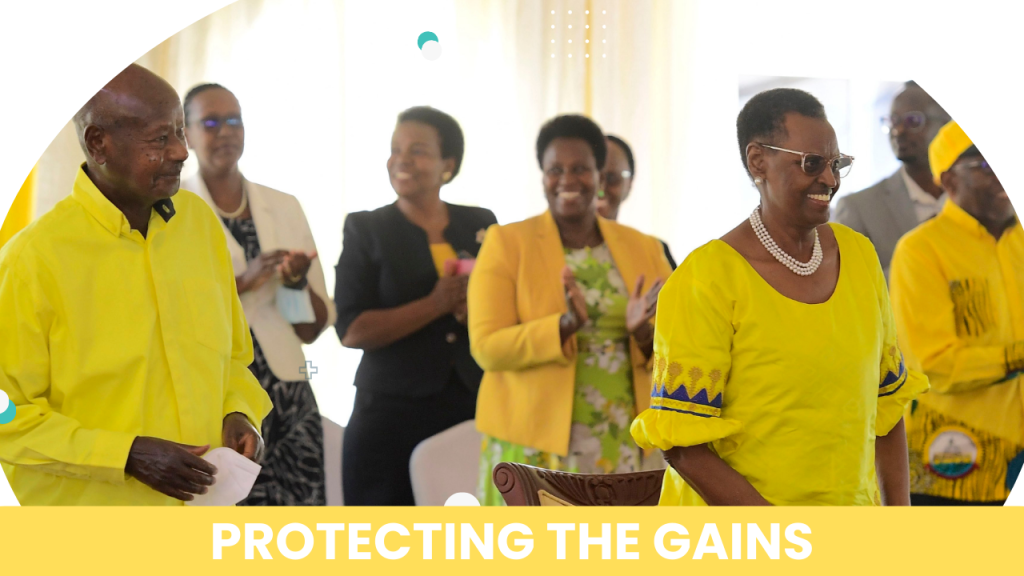
PROTECTING THE GAINS, OUR GAINS OUR RESPONSIBILITY.

